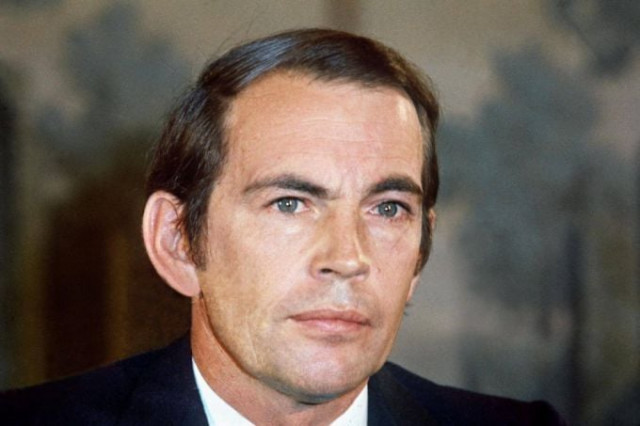The man with a young woman's heart
Fifty years ago a surgeon in Cape Town successfully transplanted the heart of a woman into the chest of a dying man

Fifty years ago South Africa stunned the world: A surgeon in Cape Town, Christiaan Barnard, successfully transplanted the heart of a woman into the chest of a dying man. PHOTO: AFP
Here is a narrative, largely based on AFP reporting at the time, of the extraordinary details surrounding the first human-to-human heart transplant.
Ann Washkansky could not have imagined that the traffic accident she comes across on December 2, 1967, would bring both life and fame to her terminally ill husband.
As Washkansky is driving back from visiting her husband at Groote Schuur Hospital in Cape Town when she sees a vehicle slam into Denise Darvall, a young bank worker, as she is crossing a busy road.
Her body flies through the air and her head smashes into a parked car, fracturing her skull. It is soon clear that Darvall is brain dead. But her heart is still beating.
India's first womb transplant a success
Louis Washkansky, 53, has been told he has only weeks left to live because of severe heart failure.
He accepts without hesitation a barely imaginable proposition from Barnard: a heart transplant.
Successful transplants of kidneys and livers have been carried out for years but none so far with a human heart, the core of life itself.
The father of 25-year-old Denise quickly gives his consent.
"If you can't save my daughter, you must try and save this man," Edward Darvall is quoted as saying in Donald McRae's 2006 book "Every Second Counts: The Race to Transplant the First Human Heart".
The operation starts in the early hours of December 3.
Denise's heart is removed and placed in a 10-degree Celsius (50-degree Fahrenheit) solution for transfer to an operating room where around 20 doctors, nurses and technicians are gathered around Louis.
The tension is knife-edge, a young intern who was present recounts in an AFP story filed the following day.
"When the last anastomosis (connection) was done, it was the moment of truth. Everyone craned their necks for a better view. In the complete silence, Professor Barnard murmured: 'Christ, it's going to work!'," says the intern, whose name is not given.
"The anaesthetist then called out the pulse rate: 50, 70, 75 and then, half an hour later, 100," the intern recounts.
"The mood was extraordinary. We knew everything had gone well.
Suddenly, the professor removed his gloves and asked for a cup of tea."
‘Kidneys transplanted into 18 foreigners’
"I am much better," Washkansky is quoted as saying in his first conversation, about 33 hours after the operation, with the surgeon he calls "the man with the golden hands".
"I gave you a new heart," Barnard says.
The news spreads. At 1:17 pm on December 3, AFP's telex machines rattle out a short piece, originally in French: "A heart transplant, believed to be the first in the world, was successfully carried out today at Groote Schuur Hospital in Cape Town."
It was a complete surprise as "everyone" expected that such a first would come from the United States, an AFP medical correspondent writes.
With a beaming smile, good looks and a way with words, Barnard, the 45-year-old South African surgeon, quickly becomes a media star.
"On Saturday," he says in an interview 30 years later, "I was a surgeon in South Africa, very little known. On Monday, I was world renowned."
Four days after the groundbreaking procedure, Louis Washkansky gives a short radio interview from his hospital bed. The microphone has been sterilised and the reporter has to stay at the door of the room to avoid infecting the patient.
He becomes known as "the man with the heart of a young girl", and his vitality and good humour are astonishing.
To a visiting French doctor, he says: "Tell the Parisians to make a collection and buy me a plane ticket and I will come over and see them."
But he would not have the opportunity to travel. Washkansky dies from pneumonia 18 days after the transplant, his heart still functioning but his immune system weakened by the drugs used to prevent his body's rejection of the new heart.
Barnard, meanwhile, embarks on a world tour as the latest pioneer of modern medicine.



















COMMENTS
Comments are moderated and generally will be posted if they are on-topic and not abusive.
For more information, please see our Comments FAQ